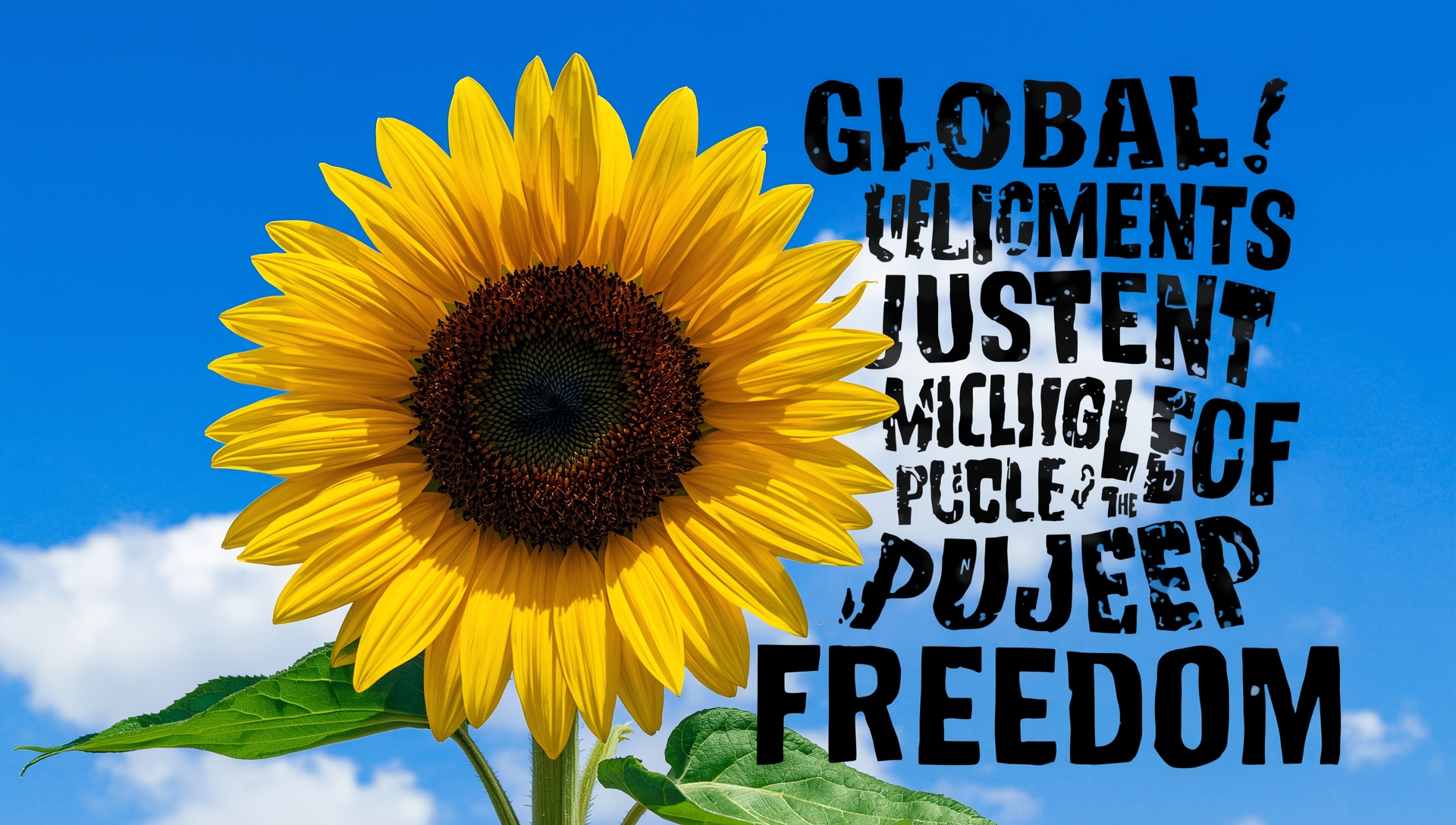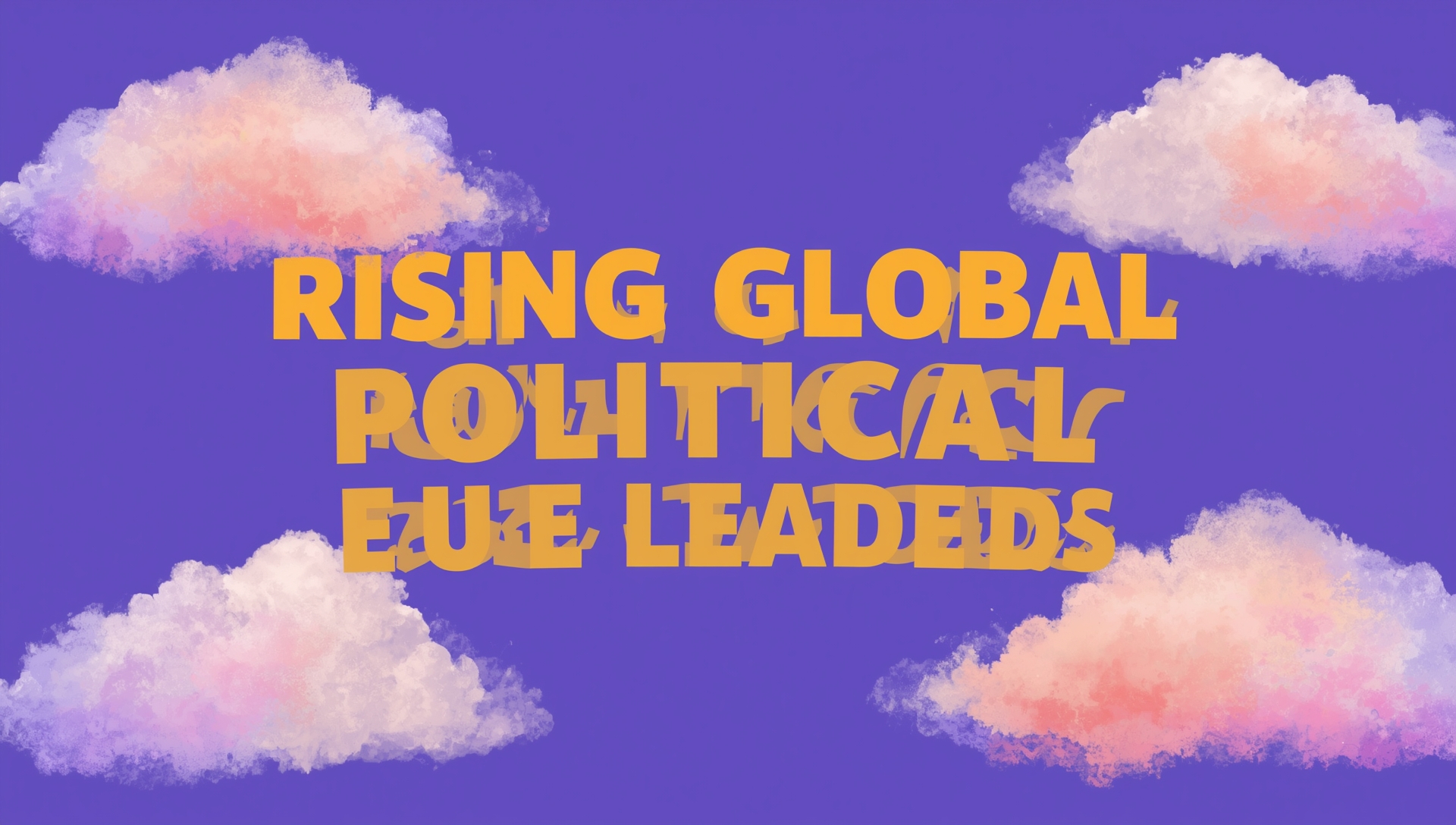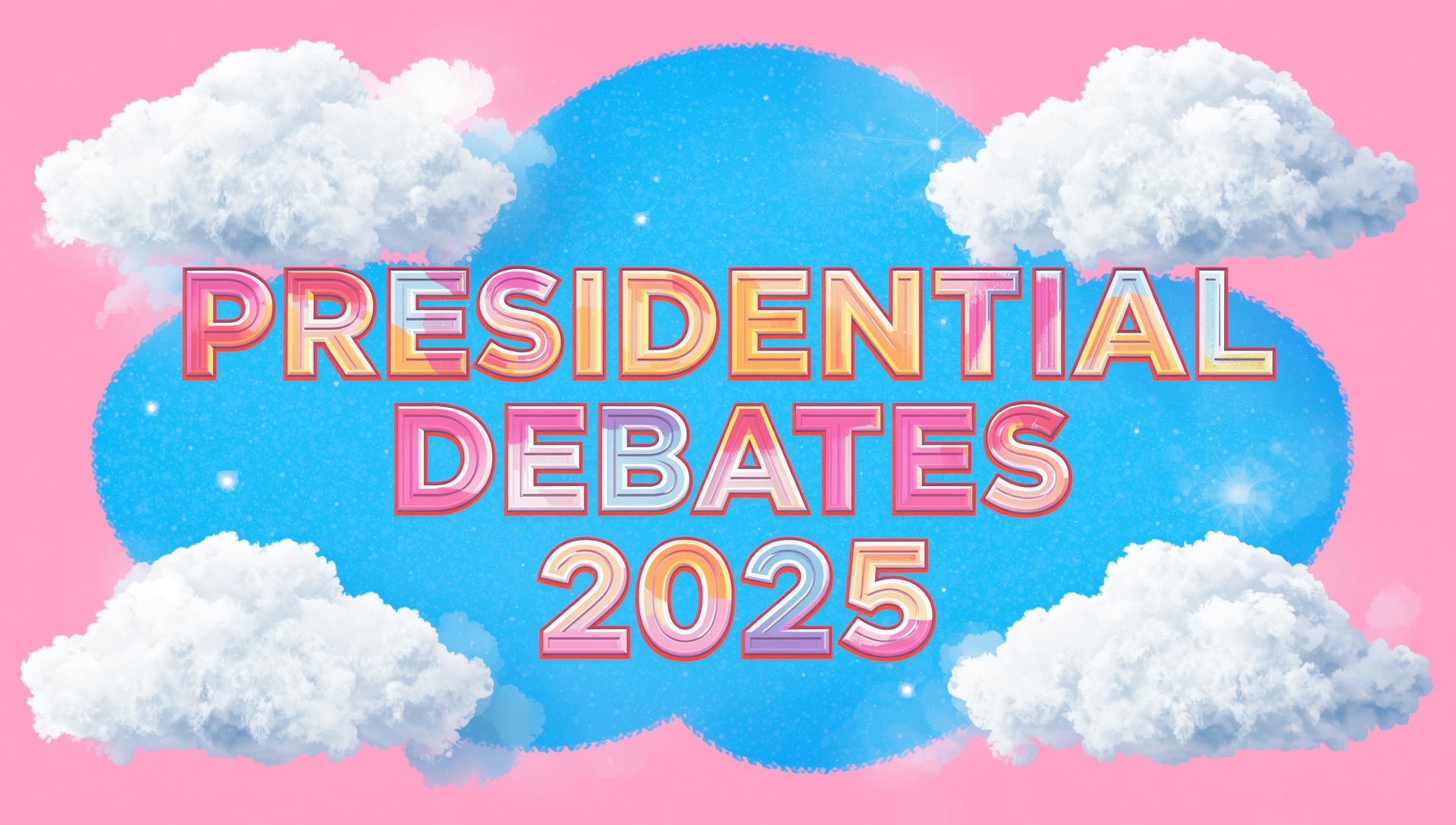Any country’s progress is based on its educational system, and in 2025, many nations are actively working to reform their educational systems to better prepare the next generation for a world that is changing quickly. National governments are changing their educational environments by updating out-of-date curricula, expanding digital access, strengthening teacher preparation, and encouraging inclusive learning. In addition to raising academic achievement, these reforms are meant to better prepare students for the demands of the contemporary economy and global citizenship.
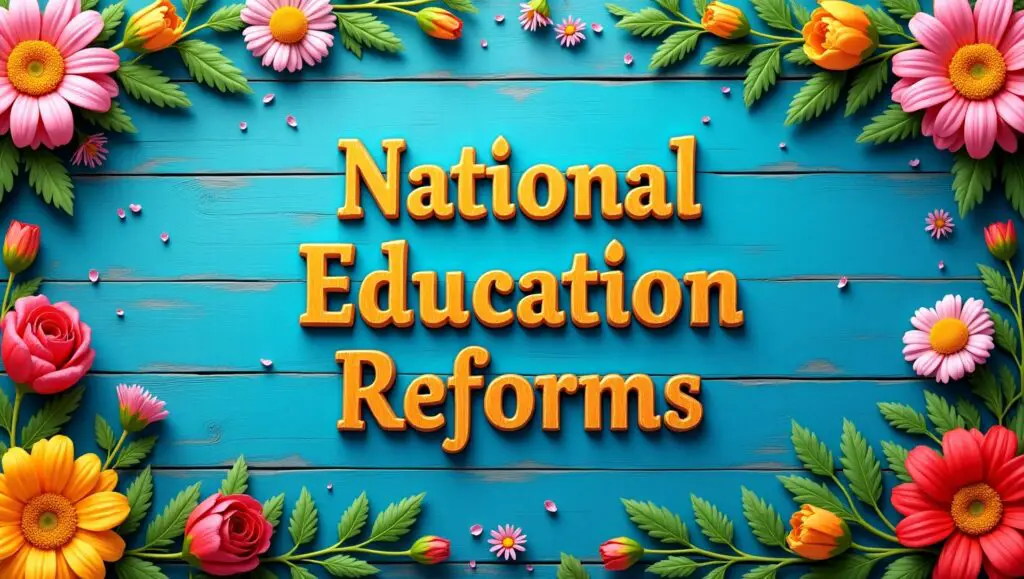
The Need for Reforms in National Education
Technology advancements, economic developments, and the COVID-19 pandemic’s aftermath have put tremendous strain on educational systems worldwide in recent years. A substantial learning gap has been brought about by outdated curricula, poor infrastructure, a lack of teacher preparation, and unequal access to resources.
Countries including Bangladesh, Nigeria, India, and Pakistan have implemented national education reform agendas in recognition of this. Through planned policy reforms, the emphasis is on raising the standard, accessibility, and applicability of education.
Modernizing the Curriculum and Using Skills-Based Learning
The reform of the curriculum is one of the most important changes in 2025. Skills-based and inquiry-driven learning strategies are replacing traditional rote learning techniques. The Single National Curriculum (SNC) in Pakistan is still developing, with a focus on digital literacy, ethics, creativity, and critical thinking in all academic areas.
The National Education Policy (NEP) 2020 in India is also well underway, and by 2025, the majority of states will have implemented the new school structure (5+3+3+4), which promotes vocational training in secondary education and foundational learning in the early years.
In addition to academic proficiency, the goal is to cultivate students who possess the problem-solving, communication, and innovative abilities needed to succeed in the twenty-first century.
Integration of EdTech and Digital Learning
Global education changes are greatly aided by the digital revolution. Governments are making significant investments in virtual classrooms, online learning environments, and technology infrastructure. Programs like TeleSchool and e-Taleem have been extended in Pakistan to reach outlying regions with limited access to traditional education.
Many schools have implemented blended learning approaches by 2025, which integrate online curriculum with in-person instruction. Leading the way in the use of AI-powered technologies for personalized learning that allow students to advance at their own pace are nations like Finland and South Korea.
Furthermore, digital literacy is now a fundamental part of school curricula, guaranteeing that students are proficient users and creators of technology rather than merely consumers.
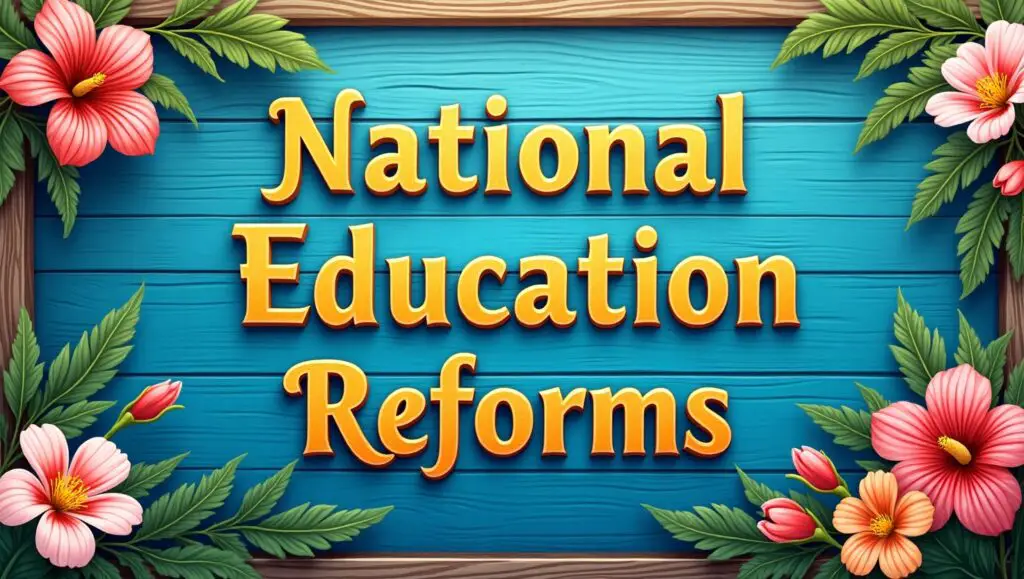
Professional Development and Training for Teachers
Without giving teachers more authority, education reform is not complete. In 2025, preparing and upskilling educators to use contemporary teaching techniques will be a major priority in many developing countries. For high-achieving teachers, governments are offering incentives, mentorship programs, and frequent workshops for professional development.
Under the National Education Policy, Pakistan’s teacher training institutions have undergone modernization, implementing new certification programs that meet international standards. Similarly, mobile-based teacher training applications are being used to reach teachers in rural areas of African nations like Ghana and Kenya.
These improvements guarantee that students receive better instruction and support by increasing teaching standards.
Fair and Inclusive Education
Inclusion is a key component of the current educational reforms. Governments are working to support children with impairments, close the gender gap, and integrate underserved communities into the mainstream of education.
By offering scholarships, constructing separate schools for girls in rural regions, and employing female instructors, Pakistan’s National Education Policy 2021–2025 places a strong emphasis on gender parity. To improve the learning outcomes of children from linguistic and tribal minorities, the NEP in India promotes mother-tongue instruction in the early grades.
Additionally, there are global initiatives to use inclusive teaching methods and assistive technologies to make classrooms more accessible for kids with special needs.
Partnerships between the Public and Private Sectors and Community Engagement
The use of public-private partnerships (PPPs) in education reform is growing in popularity. By 2025, numerous governments are working with private schools, non-governmental organizations, and tech firms to upgrade school facilities, give away free digital devices, and provide impoverished pupils access to the internet.
Thousands of youngsters in underprivileged parts of Pakistan now have access to high-quality education because to collaborations with groups like Teach For Pakistan and The Citizens Foundation. With parents, local authorities, and school management committees taking a bigger part in decision-making, community involvement is also being promoted.
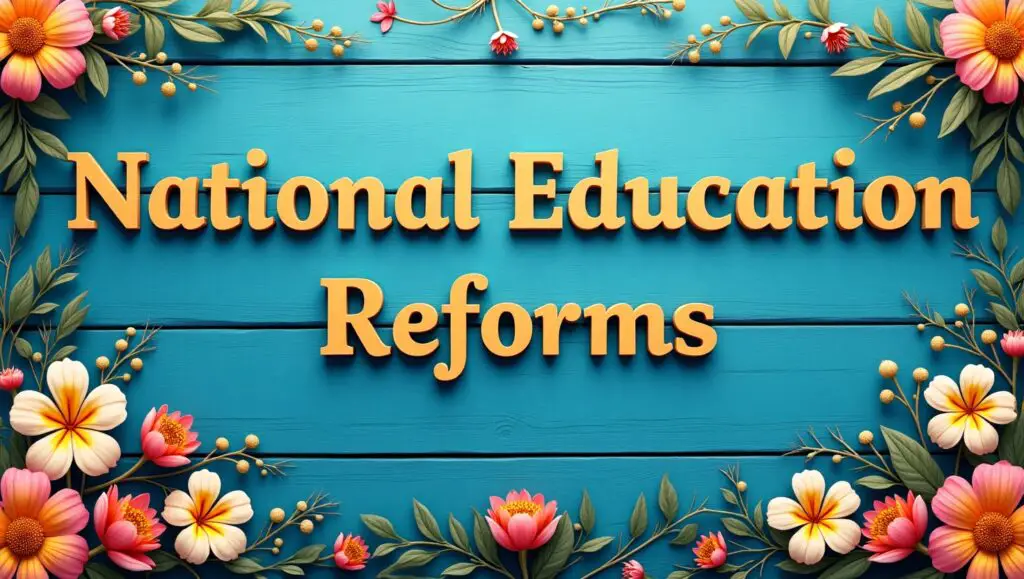
Reforms in Higher Education and Research
Colleges and universities are likewise being affected by national education reforms. In 2025, there will be a global effort to improve research capacities, encourage multidisciplinary education, and match the needs of the labour market with higher education.
The Higher Education Commission (HEC) framework is being reformed by nations like Pakistan in order to promote student exchange programs, raise teacher standards, and foster innovation. Research funding, skill development programs, and startup incubators are being implemented to increase entrepreneurship and employability.
Prospects for the Future and Upcoming Difficulties
These reforms show promise, but there are still obstacles to overcome. Implementation is frequently slowed down by financial limitations, geographical differences, change aversion, and a shortage of qualified staff. These challenges may be addressed, though, with community support, international collaboration, and strong political resolve.
Building an adaptable, inclusive, and progressive educational system that enables each kid to realize their full potential is the clear vision for the future.
In conclusion
In 2025, national education reforms will redefine how schools operate, how teachers instruct, and how students learn. These reforms—which range from inclusive policies and community collaborations to contemporary curricula and digital tools—represent an essential investment in a country’s future. As these developments progress, education has the potential to create stronger, more resilient societies, open up new opportunities, and lessen inequality.
curriculum reform, teacher training programs, inclusive education, digital learning in schools, Pakistani educational development, single national curriculum, higher education reforms, education technology 2025, national education reforms 2025, and education policy updates

